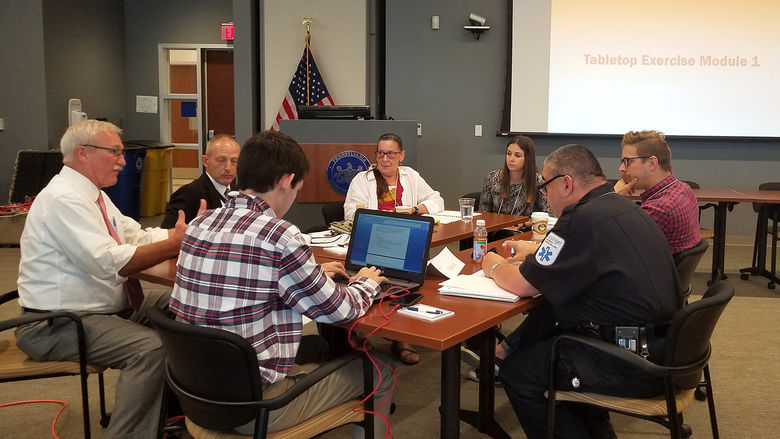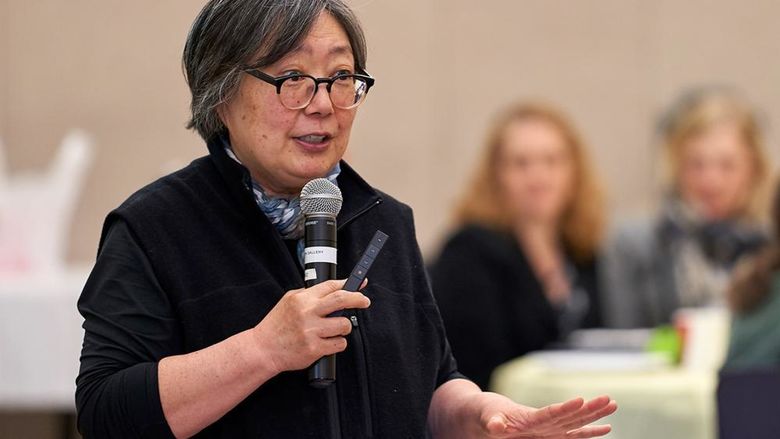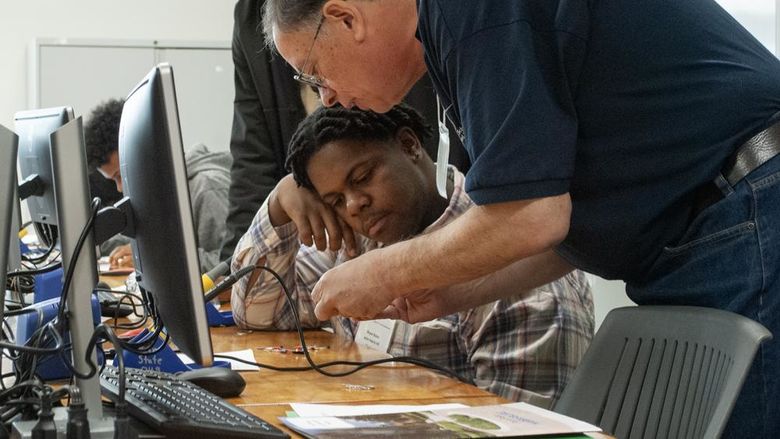
HARRISBURG, Pa. — Deaths from the opioid epidemic have surpassed those from auto accidents as well as gun violence, and are now on par with those of the HIV epidemic at its height, according to Dr. Weston Kensinger, Penn State Harrisburg assistant teaching professor of health education in the college's School of Behavioral Sciences and Education.
“Not a day goes by that its horrible effects are not seen,” he said. “It’s critically important that we use all of the tools we have to continue to raise awareness about this crisis and the resources available to help anyone who needs them.”
In Pennsylvania, Gov. Tom Wolf recently declared the heroin and opioid epidemic a statewide disaster emergency in an effort to fight against addiction in the state. The first-of-its-kind declaration is intended to save more lives through enhanced state response and increased access to treatment.
Penn State Harrisburg faculty are finding unique ways to educate students on how they can be a part of battling the epidemic.
Kensinger is helping by providing tools to graduate students to make a positive difference. He hopes the students in his colloquium class — mostly working professionals — will take their newfound knowledge to the wider community.
Throughout the course, graduate students learned from a variety of experts fighting the battle every day, including specialists from law enforcement, treatment facilities, government agencies, medical professions, family members, and directly from those suffering from substance-use disorders. Students also had the opportunity to interview a recovering addict, attend Alcoholic Anonymous or Narcotics Anonymous meetings, and challenge themselves by giving up an enjoyable activity for four weeks while keeping a journal.
“I wanted my students to come out of this course knowing about the epidemic from all angles,” Kensinger said. “Many see the epidemic from only one angle. This can widen their perspective. It gives an idea where to focus their attention ... They couldn't believe how horrible the epidemic is, not just the death toll, but how it affects families, children, as well as how addicts in recovery are affected for the rest of their lives.”
One of the students, Kaitlyn Dewalt, is a learning support teacher in an elementary school. She has seen the effects of opioid addition — in one case a student's stepfather died of an overdose; another time a student was being used as a drug runner for his father. She said knowing more about the signs and symptoms of drug addiction will be helpful in her job if she suspects something during parent/teacher conferences. She can also offer advice to colleagues.
She said Kensinger's class was beneficial in understanding the problem. She learned that addiction is out of one's control, “it resets the mind into thinking it continually needs drugs and is unable to function without them. The side effects of withdrawal are horrible,” she said.
“Drug addiction is in every town, every county, every state,” she said. “It does not just happen to underprivileged, young adults. In fact, it happens the most to middle-aged white males.”
She learned that one way to start tackling the problem is to eliminate the stigma that comes with addiction.
“I am genuinely concerned for our nation's future if we do not begin to offer better treatment and services for those suffering from addiction,” she said. “We also need to offer help rather than shut these individuals out and make them feel unworthy.”
Katie Forsyth, who is completing her master’s degree in health education and wants to follow a career in community health, said she had not heard much about opioids before she took the class. “Now I see it's everywhere,” she said.
At times the course got emotional, especially after hearing from those battling addiction. Forsyth was moved by a speaker who shared her personal story of heroin addiction and getting clean through drug court.
“She showed me that addicts are not the stereotype you often have,” Forsyth said. “They are normal people who fell into this. It gave me more empathy.”
Forsyth will have an internship with a Wellspan Health location this summer and hopes the knowledge she gained will help her.
“I'd like to help that population that no one wants to help,” she said. “It will take all hands on deck to solve this.”
Kensinger said it's important to reach out to the larger community.
“There's a need in the community for a course like this, for people to become informed,” Kensinger said. “This hit close to home for many of my students. One of their best experiences was attending the AA meetings — seeing firsthand the effort addicts make to come clean.”




